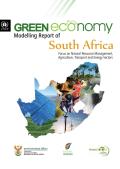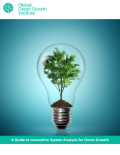This study, undertaken by Eunomia Research & Consulting (Eunomia) in conjunction with Professor Mikael Skou Andersen of Aarhus University and the Institute for European Environmental Policy (IEEP), has, as its central aim, to: “… provide empirical data or secondary sources on the potential economic and social benefits of environmental fiscal reform, to support the input in the European Semester process on environmental protection and resource efficiency”. The specification elaborates on this as follows: “The task includes presenting data on the potential of revenues from environmental taxation and other indirect benefits such as job creation resulting from EFR in 14 selected countries, using the methodology the EEA has developed and which was also applied to the study published on 03.03.14 for 12 Member States”. The following 14 Member States were included in this study: Bulgaria, Cyprus, Denmark, Finland, Germany, Greece, Latvia, Malta, Netherlands, Slovenia, Spain, Sweden, Ireland, United Kingdom.
This report develops a framework that classifies investments according to different types of financing instruments and investment funds, and highlights the risk mitigants and transaction enablers that intermediaries (such as public green investment banks and other public financial institutions) can use to mobilise institutionally held capital. This framework can also be used to identify where investments are or are not flowing, and focus attention on how governments can support the development of potentially promising investment channels and consider policy interventions that can make institutional investment in sustainable energy infrastructure more likely.
This Synthesis Report is based on an 18-month project, Greening China’s Financial System, carried out by the International Institute for Sustainable Development (IISD) and the Finance Research Institute (FRI), Development Research Center (DRC) of the State Council, in association with the United Nations Environment Programme (UNEP) Inquiry into the Design of a Sustainable Financial System, and with support from the Fridtjof Nansen Institute. The aim is to develop specific proposals for greening China’s financial system, based on an analysis of current practice in China and an exchange of experience with international experts.
Aligning a financial system with sustainable development does not happen automatically. The increasing scale and sophistication of Africa’s financial system alone will not achieve it. Indeed, international evidence amply demonstrates that financial and capital markets can — and often do — become detached and fail to adequately serve the long-term needs of inclusive sustainable development.
Numbers ranging from half a trillion to two trillion dollars have been cited in recent years for global subsidies for fossil fuels. How are these figures calculated and why are they so different? The most commonly used methods for measuring subsidies are the price-gap approach, quantifying the gap between free-market reference prices and the prices charged to consumers and the inventory approach, which constructs an inventory of government actions benefiting production and consumption of fossil fuels. Practitioners are not faced with two choices. The two methods are complementary and should be used together, price gaps cause distortions throughout the economy and quantification is needed for improving pricing policies; an inventory is useful for examining budgetary allocation. An inventory based on a full accounting framework for producer and consumer support estimates in fact captures price gaps as market transfers to producers or consumers. Differences in subsidy valuation arise from assumptions made to compensate for missing data and the scope of subsidy measurement.

There are many claims and counter-claims about whether green growth creates or destroys jobs. But fully assessing the consequences of environmental policies for employment presents a considerable challenge, and at present it is not possible for policy-makers to assess conflicting claims about the quality and quantity of green jobs that have already been created, or may be created in the future. One approach would be to focus on changes in employment in industries that provide environmental goods and services. Another would be to count the jobs created when firms adopt technologies with less environmental impact and switch to less polluting inputs, regardless of their primary outputs. Both approaches can be helpful for assessing the direct impact on jobs and the scale of structural change required by the transition to green growth. But green policies also affect labour markets indirectly through supply chains and through changes in overall demand. The destruction of ‘brown jobs’ in polluting industries should also be taken into account.
The purpose of this paper is to provide a critical review of extant knowledge on green lodging integration and a compilation of empirical studies that examine the greening of the lodging industry, published between 2003 and 2014. Empirical academic studies are grouped in three pillars: (a) studies that focus on corporate perspective, (b) studies that examine the role of governmental and trade organizations and (c) studies that focus on consumers’ perceptions in regard to hotels’ green integration. Accumulated knowledge is further presented in a structured way, through a Summary Table. Finally, the paper aims at setting the future research agenda in the area of green lodging by highlighting areas where results are equivocal, areas with evolving research attention and research issues that would enhance our understanding towards a greener lodging industry.

China’s drive to develop a low-carbon, resource-efficient economy is a top priority of the government, placing pressure on the industrial development zones (IDZs) to respond to a growing and diverse set of policy levers. The International Institute for Sustainable Development (IISD), with the support of the Swiss State Secretariat for Economic Affairs (SECO) and the Chinese Ministry of Commerce (MOFCOM), is working with Chinese industrial and economics zones to identify key policy trends that will affect competitiveness and to provide insight to help better manage the transition to a low-carbon, resource-efficient economy. This synthesis report provides an overview of the two phases of the project, which a specific focus on the low-carbon drivers of IDZs, an overview of the research results, policy trends and drivers of low-carbon development in IDZs and Priority areas for action.
